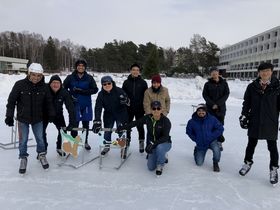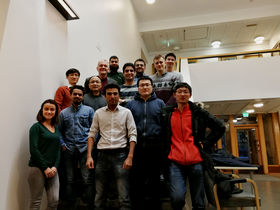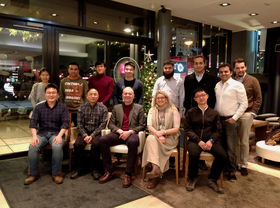Nanomaterials (NMG)
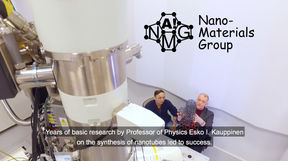
The main research areas of the group are
- the aerosol synthesis and mechanistic studies of formation of carbon nanotubes and inorganic nanoparticles
- the applications of carbon nanotubes in transparent and flexible electronics
- pharmaceutical nanoparticles and nanostructured microparticles as drug delivery systems
- high resolution electron microscopy
Aalto Game Changer video of the NMG group (see also https://gamechangers.aalto.fi/en/).
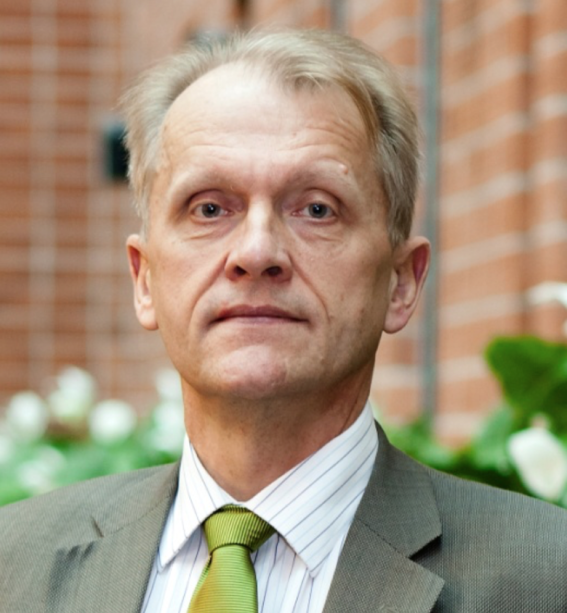
Group leader
Esko Kauppinen
Professor Esko I. Kauppinen, PhD (Physics) is the Vice-Dean responsible for research, innovations and industry relationships at the Aalto University School of Science and Tenured Professor of Physics at the Department of Applied Physics. He has published more than 450 scientific journal papers e.g. in Nature Nanotechnology, NanoLetters, ACS Nano, Angewandte Chemie, Carbon, Energy and Environmental Sciences etc., having Hirsch-index over 69 and over 17 200citations. He has given more than 130 keynote and invited conference talks and over 230 talks at world leading companies and universities. He is considered one of the world leading authors in the area of single walled carbon nanotube synthesis, characterisation and thin film applications as well as in the gas phase synthesis of particles for inhalation drug delivery. He is the founding member of the companies Canatu Oy (http://www.canatu.com), MetalCirc Oy (https://www.metalcirc.com/)and Teicos Pharma Oy (www.teicospharma.com). Professor Kauppinen is the first Finnish recipient of a UNESCO Nanosciences Medal, which he received 2018.
Research
The NanoMaterials group is active in several research fields:
- Aerosol-based synthesis of nanomaterials: single-walled and multiwalled carbon nanotubes (CNTs), metal and metal oxide catalyst nanoparticles
- Carbon nanotube based thin film electronics: transparent conducting electrodes (TCEs), thin film transistors (TFTs), sensors
- Materials for electrochemical energy applications
- Pharmaceutical nanomaterials: nanostructured microparticles and nanoparticles for drug delivery and controlled release
- Electron microscopy: atomic resolution imaging of nanomaterials, EDX, chirality measurements of CNTs
- Aerosol measurements and techniques: Differential Mobility Analysis (DMAs), nanoaerosol deposition by thermophoretic and electrostatic precipitators
- Computational Fluid Dynamics (CFD)
Latest news
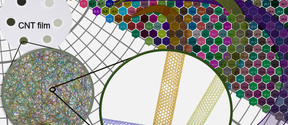
Sheets of carbon nanotubes come in a rainbow of colours
Study: Nanotube films come in 466 colours, could be used in electronics, solar panels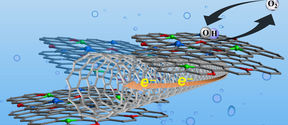
New material developed could help clean energy revolution
Researchers developed a promising graphene–carbon nanotube catalyst, giving them better control over hugely important chemical reactions for producing hydrogen fuel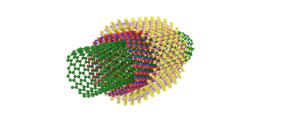
Aalto carbon nanotubes used in new material revolution
Nanomaterials produced here have been used in groundbreaking new Science paper as part of international collaboration
New way to know an old friend: New method reveals clean carbon nanotube transistors with superb properties
Scientists at Aalto and Nagoya University find new way to make ultra-clean nanotube transistors with superior semiconducting propertiesFacilities
The Nanomaterials group has a wide range of experimental facilities for the synthesis of carbon nanotubes and for their characterization as well as for developing pharmaceutical inhalation products.
Aerosol reactors for drug delivery systems
The Nanomaterials Group has developed the Aerosol Flow Reactor Method to formulate nano- and microparticles for pharmaceutical applications. The aerosol method enables formulating materials with different solubilities and thermal properties as novel platforms for controlled drug delivery, non-viral vectors for gene therapy and carrier-free drug powders for inhalation therapy.
Current focus areas
- Next generation pulmonary delivery of therapeutic peptides
- Efficient pulmonary delivery of poorly water-soluble drugs
- Coating and encapsulation of combination drugs for pulmonary delivery
Aerosol flow reactor
Solutions where materials are dissolved are dispersed into droplets which are carried to the aerosol reactor with a gas. The particles are dried in a laminar flow followed by the coating process. Dry particles are collected by a cyclone or impactor. The general features of the aerosol reactor are listed below.
- Jet atomizer: droplet size 300 nm, production 104-105 1/cm3
- Ultrasonic nebulizer: droplet size 3-4 µm, production 105-106 1/cm3
- Temperature 20-300 ºC, flow rate 1-20 l/min
- Solvent options are many, however, no solvent mixtures are recommended
Carbon nanotube reactors
The Nanomaterials Group operates five carbon nanotube reactors based on the aerosol-based synthesis technique.
Diverse equipment
- Sigma Laborzentrifugen 3k30 centrifuge
- Elma Emasonic P ultrasonic cleaning unit
- VWR ultrasonic cleaning bath
- Jandel cylindrical four point probe head (× 2)
- Jandel Model RM3000 test unit: combined constant current source and digital voltmeter designed specifically for the four point probe measurement
- Jandel manual four point probe stand
- Aalborg MFC mass flow controller command module
- Aelita MFC mass flow controller command module
- Bubble-o-meter Bubble Meter 2 ml for very low gas flow measurements
- Delta OHM micromanometer, digital differential pressure and air flow meter
- Fluke 922 Airflow meter
- Gilian Bubble generator high flow for measuring high gas flow
- Gilian Bubble generator low flow for measuring low gas flow
- Gilian Gilibrator2 primary flow calibrator
- Mascot SEE 60-08TE pressure meter and flow control
- Oldham Toximetre TxII CO warning meter
- TSI Flow meter model 307100 air flow meter
- Fritsch Pulverisette 7 pulverizer / grinder
- Agilent Technologies 33216A 10 MHz / Arbitrary waveform generator
- Gentrad DR07 decade resistor box
- Rohde & Schwarz ZVCE vector network analyser
- Tabor electronics 9100 high-voltage wideband amplifier
- Thermolyne 48000 furnace
- Meyer-vastus 1209 power source and tube furnace
- WTC binder large scale furnace
- Mituoyo Lamplink fiber optic lamp light source illuminator
- Thorlab TCLDM9 laser diode, mount and controllers
- CH instruments scanning electrochemical microscope
- Motic ST39 series optical microscope
- Fluke 87V true RMS multimeter
- Hewlett Packard 3458A multimeter
- Tektronix MDO 3014 mixed domain oscilloscope
- Dekati ELPI particle size distribution meter
- Grimm model 5414 condensation particle counter
- Grimm DMA 55-U electrostatic particle classifier
- Grimm DMA model 5.710 electrostatic particle classifier
- Labtronic condensation particle counter
- TSI model 3775 condensation particle counter
- VTT aerosol technology group Model 3027 ultrafine condensation particle counter
- Mettler Toledo SevenEasy pH meter
- Agilent Technologies E3633A DC power supply (× 2)
- Heinzinger LNC 10000-5 pos power supply
- Hewlett Packard 6634B power supply
- Protek 3003B DC power supply
- Thandar TS3022S precision DC power supply
- Velleman PSS-4005 power supply
- Ashcroft digital test gauge
- Magnehelic differential pressure meter for small pressure differences
- Swagelok pressure gauges
- Watson Marlew Bredel pump
- Agilent Technologies B1500A semiconductor analyser
- Agilent Technologies 4156B precision semiconductor parameter analyser
- KarlSuss PA200 2F10 13 probe station
- Fluke 51 II thermometer
- Heidolph MR Hei-standard magnetic stirrer and heatplate (× 4)
- IKA C-MAG H57 magnetic stirrer and heatplate
- Thermo Scientific Variomag Poly 15 large scale magnetic stirrer and heatplate
- VWR VMS-C9 magnetic stirrer and heatplate
- Hanning Elektro-Werke Trivac E2 rotary vane vacuum pump
- Metrohm 663 VA stand mercury drop electrode system
- Kern PCB 3500-2 precision balance
- Mettler AT261 Delta Range analytical balance
- Radwag AS 101.R2 analytical balance







